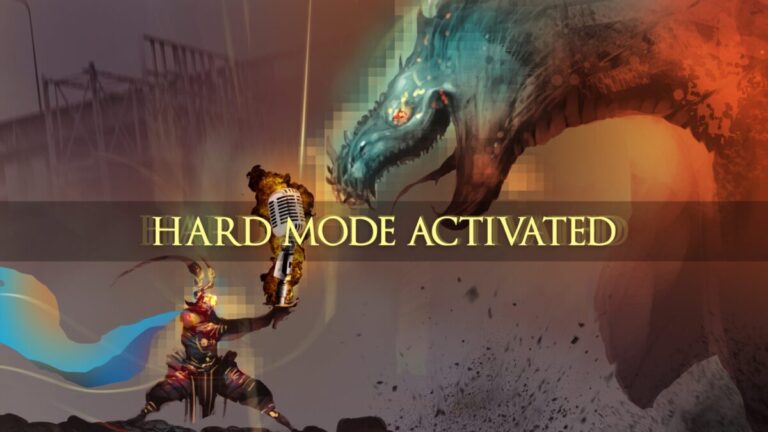When it comes to acting, things can get confusing—really fast. With countless opinions on what makes a great performance, it often feels like everyone is shouting over one another. Yet after booking over 8,000 voice acting jobs in just over a decade—and without ever receiving formal training—I’ve discovered one principle that consistently makes a difference: understanding and harnessing your impulse.
In this post, I’ll share what acting really is, why the impulse behind every action matters, and how you can develop the skill of finding that impulse to transform your performance—whether you’re on stage, on screen, or behind a microphone.
At its core, acting is about replicating life. Just as coding is about creating programs to perform specific tasks or painting is about evoking emotions, acting exists to mirror the human experience. Every gesture, every word, and every pause should reflect the truth of life itself. This might sound overly simplistic—after all, we rarely encounter superheroes, orcs, or goblins in our everyday lives. But whether you’re playing a fantastical creature or a grounded character in a drama, your performance will resonate only if it has a relatable, human core. When you bring the pulse of real life into your portrayal, audiences connect with you—even if your character is anything but ordinary.
The reason life feels real is simple: nothing happens without a reason. Every action we take, every word we speak, is driven by an impulse—a fundamental force that compels us to act. This concept isn’t just a philosophical musing; it’s a practical tool that, when applied to acting, turns a flat reading into a vibrant performance. Consider everyday life: you don’t stand up or speak without an underlying motivation. The same principle applies on stage or behind the mic. If you’re unclear about why your character is delivering a particular line, you’re not really acting—you’re merely reading a script.
When you understand the impulse behind a line, you unlock the deeper meaning of that moment. Without that clarity, your performance risks being a mere recitation, devoid of the energy and authenticity that truly moves an audience. Think of an audition where a dramatic line like “We have to get out of here now!” is delivered without an emotional anchor. Without knowing whether the character is driven by sheer panic, protective love, or deep-seated fear, your delivery might hit the technical marks but miss the emotional connection.
One of the most common pitfalls I’ve seen in auditions is treating a script as just a set of lines to be read. Simply reciting words without digging into their meaning leaves behind the magic that transforms lines into an experience. Even if your script is perfectly written, without the impulse driving your performance, the audience will feel a disconnect. A truly effective performance comes from understanding the “why” behind every word. Reading a script without internalizing its meaning is like looking at a painting from a distance—you might see the image, but you miss the intricate details that give it life.
The key to great acting is to identify and harness the impulse behind every line. This process starts by asking yourself a few fundamental questions whenever you approach a script:
1. Who Are You in This Situation?
Every scene is a snapshot of a larger story. Define your character—are you a confident hero, a troubled soul, or a quirky narrator? Understanding your character’s background, personality, and emotional state is the first step to uncovering their impulse. Even if the script offers limited details, use your imagination and experience to fill in the gaps.
2. Who Are You Talking To?
Acting is never a solo endeavor. Your performance is about the relationship between you and the other characters—or even the audience if you’re addressing them directly. Is your scene partner a trusted friend, a bitter adversary, or a faceless crowd? The dynamic of this relationship influences the impulse behind your words. Adjust your delivery to reflect whether you’re comforting, challenging, or persuading your counterpart.
3. Why Are You Saying It?
This is the heart of your performance. Once you’ve established who you are and who you’re talking to, ask yourself: what emotion or motivation drives this line? Are you fueled by fear, excitement, anger, or something more nuanced? Every utterance has a reason. Even a seemingly simple observation has layers of meaning if you dig a little deeper.
***
A major challenge in acting—especially in voice work—is handling scripts that involve larger-than-life scenarios. Whether you’re a wizard battling a dragon or a superhero saving the world, the impulse behind your performance must be rooted in relatable human emotion. Imagine a scene where your character shouts, “We have to get out of here now!” In a fantastical setting, the urgency might be driven by otherworldly forces, but at its core, it’s still a reaction to fear, danger, or a desperate need to protect someone. The fantastical elements are simply the backdrop; the real performance comes from the authentic, human impulse that drives the action.
Understanding the context from which your impulse arises is essential. It’s not enough to simply mimic dramatic inflections; you must internalize the situation and let it shape your response. Whether your character is facing mythical creatures or everyday challenges, the impulse remains the same: it’s the honest emotion that makes your actions believable. Living in the moment is the essence of a great performance. When you fully embrace the impulse behind your lines, every gesture and pause becomes charged with meaning. Authenticity in acting isn’t something you can simply mimic—it comes from a deep connection with your character’s inner life.
The magic of a performance often lies in the subtleties: a well-timed pause, a slight shift in tone, a subtle facial expression. These moments reveal that you’re not just reciting words, but truly experiencing the emotion behind them. Authenticity bridges the gap between a technically correct performance and one that truly resonates with an audience. Over time, as you practice and refine your ability to find your impulse, your choices will become more instinctive, your delivery more natural, and your connection with the material stronger. It’s this authenticity that turns a good actor into a great one.
If you’re new to this approach or have been struggling to find your impulse, try these practical exercises to hone your skills:
Script Breakdown
Take a scene and break it down line by line. Write down:
- Who you are in each moment.
- Who you’re speaking to.
- Why you’re saying those words.
This exercise helps you connect with the underlying motivations of the script and forces you to consider the emotional journey of your character.
Improv Backstories
If the script doesn’t provide enough context, create your own. Spend a few minutes improvising a scenario that led up to the scripted moment. What happened before the scene that influences your character’s impulse? This not only fills in narrative gaps but also enriches your understanding of your character.
Mirror Work
Practice your lines in front of a mirror. Focus on how your facial expressions, tone, and body language convey the impulse behind your words. Recording these sessions can be especially valuable—review your performance and make adjustments until the emotion feels genuine.
***
The beauty of acting is that its core principle remains unchanged, whether you’re on stage, on screen, or in a recording booth.In live performance, your audience sees every microexpression and gesture. Your impulse must be communicated not just through words but through your entire body. When you fully embody your character’s impulse, the performance becomes a living, breathing entity that resonates with viewers. Voice acting is uniquely challenging because you rely solely on vocal delivery to convey emotion. Without physical gestures, every inflection, pause, and modulation must carry the weight of your character’s impulse. By internalizing your motivation, you ensure that even the simplest line delivers deep, resonant emotion. Even in commercial work, where the style can be highly stylized or the script straightforward, the impulse behind your words sets you apart. Whether you’re delivering a catchy jingle or a heartfelt narration, grounding your performance in genuine impulse makes the difference between a robotic delivery and one that truly connects.
Finding the impulse behind your lines isn’t always easy. It’s a journey of self-discovery, experimentation, and continuous refinement. There will be moments when the impulse feels elusive, but every audition, every recording session, and every live performance is an opportunity to learn more about your character—and yourself.
In an industry where every audition counts, understanding your impulse can elevate your work from a simple recitation to a compelling narrative. It transforms you from someone who merely reads a script into an artist who brings a character to life with authenticity and passion.
As you continue on your acting journey, I encourage you to experiment with this approach. Break down your scripts, ask yourself those fundamental questions, and let your personal experiences inform your performance. Whether you’re a seasoned actor or just starting out, this focus on impulse can make all the difference.
Remember, every time you approach a script, you have the chance to create something unique. Your perspective, your personal history, and that raw impulse all combine to shape a performance that’s authentically yours. And if you’re ready to dive deeper into the art of voice acting, grab a copy of my free eBook here to help get you started. So get behind the mic, step into the spotlight, and let your true self shine through!






